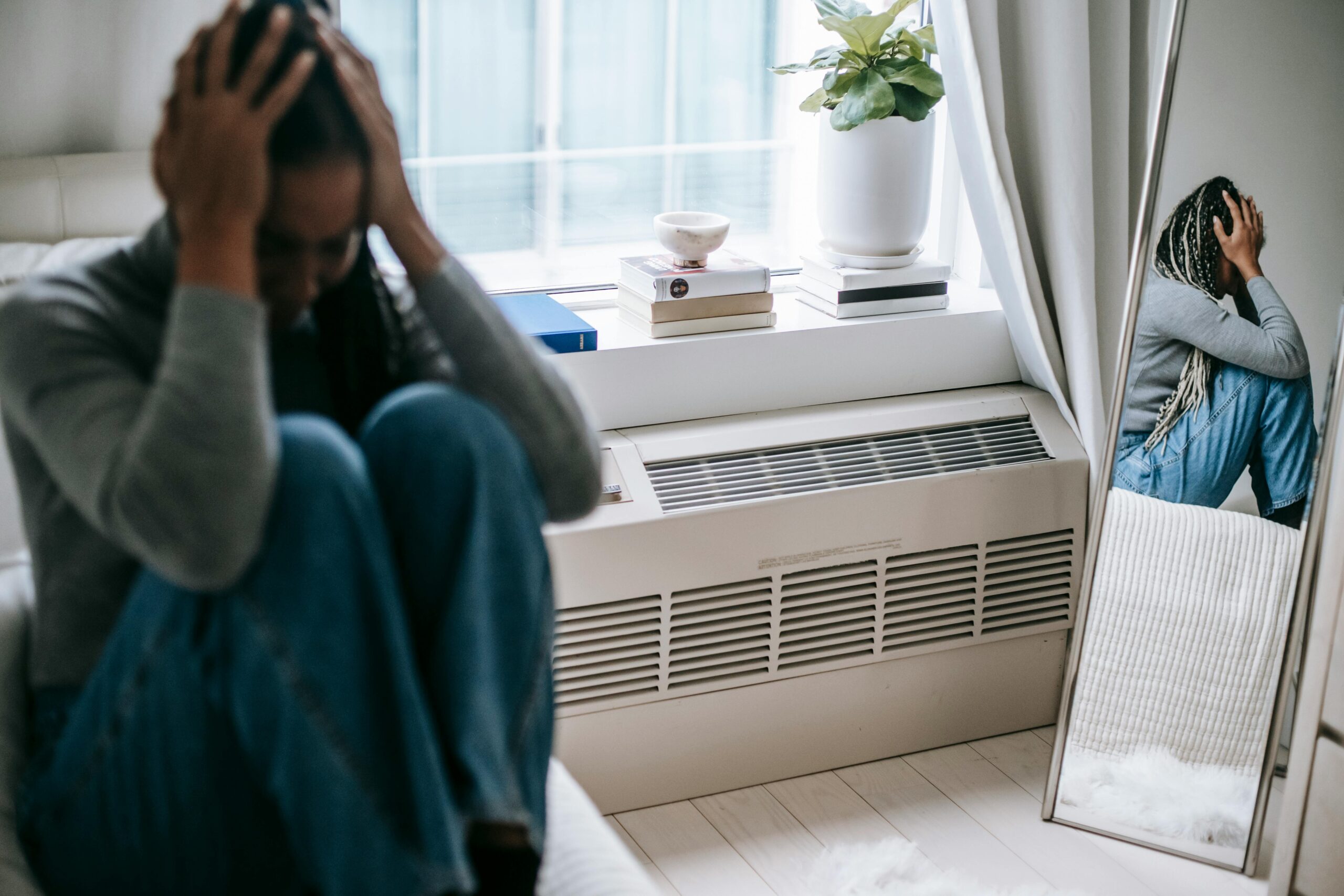Black womens experience with depression looks unlike any other groups’ version. Depression, or depressive disorder, is described as a common mental disorder. Depression shows up for Black women while trying to get ahead in their careers, trying to heal generational traumas, while resting, and in other seasons in life. The reality is, more understanding about what to look out for in depression will drastically affect Black women’s collective mental wellness. While research seeks to understand healing depression, further research has been done to focus on Black women battling depression.
Black Women And Healthcare Systems
Recent research notes that depression in Black women is present through resisting feelings of vulnerability and dependence, the ‘Superwoman or Strong Black Woman Schema’ (SBWS), and other cultural and spiritual stigmas.
“The Superwoman syndrome can significantly increase the risk of mental health issues, such as depression, when Black women don’t allow their minds and bodies to rest properly. The pressure to appear “okay” despite feeling overwhelmed internally adds extra stress to already challenging situations,” explains licensed therapist and self-care educator Katrina Leggins, LCSW.
Black women in healthcare systems are not always treated properly. In fact, healthcare systems historically ignore or neglect Black women which explains why they may be less likely to engage in these spaces vulnerably. Dr Kimber Shelton, PhD, a licensed psychologist, offers more perspective.
“To rise above historical and current gendered racism and misogynoir, Black women have mastered code-switching, masking, and suppressing emotions to make those around them feel more comfortable and for them to appear less threatening and aggressive,” Shelton said.
Depression in Black women goes undetected due to the systems that fail and overlook them.
Why Is Depression Harder To Spot In Black Women?
Shelton suggests that for Black women, depression may be more of a private experience. Whether opting to focus on somatic complaints when meeting with doctors instead of mental health concerns, or simply ‘staying strong’, Black women are not always likely to prioritize mental health complaints. Shelton explains that Black women do not always present the symptoms laid out in the Diagnostic Statistical Manual (DSM-5, the manual used for diagnosing mental illnesses). According to the manual, common symptoms include suicidal ideation, reduced functioning, feeling sad, down, depressed, apathy, feeling worthless, and inability to concentrate and make decisions.
“Black women, particularly those who have internalized the Strong Black Woman or Superwoman schema, may not identify with these symptoms. Cultural conditioning and necessity may demand that they remain productive, high functioning, and make important decisions,” Shelton explained.
Societal pressures may also be to blame for suppressing the signs of depression in Black Women. In particular, the ‘Strong Black Woman’ stereotype is an undeniable cause that has had intergenerational consequences on Black women’s mental health.
“The stereotype of the “Strong Black Woman” perpetuates the narrative that [Black women] must possess an endless reserve of strength and persevere regardless of life’s challenge,” Leggins said.
This alongside the the stigma surrounding mental health conditions within Black communities stagnates or completely prevents the recognition and treatment of depression, according to Leggins.
What Does Depression Look Like For Black Women?
When it comes to adequately diagnosing depression in Black women, diagnosis has to look beyond the physical symptoms, which Leggins and Shelton agree are more likely to be reported or noted than mental ones. Sometimes, this even comes down to the way Black women speak on their symptoms.
“The language Black women use to describe symptoms can be different from what other women express,” Shelton explained. “Instead of the depression symptoms of suicidal ideation and feelings of worthless, she may say things like, “I don’t know what is wrong with me’, ‘I need to get myself together, or she may feel like a ‘failure.'”
Physical symptoms may commonly present as insomnia, fatigue, decreased libido, high blood pressure, headaches, gastrointestinal issues, and/or weight fluctuations. Leggins adds that besides this, Black women with depression frequently report emotional symptoms.
“Including self-hate, self-blame, irritability, hyper-vigilance, and anger,” she said.
Being able to perceive and comfortably articulate the full spectrum of symptoms is how depression becomes more visible and in turn, easier treated.
How Black Women Can Support Themselves
Black women can support themselves in several ways while relearning how to navigate depression from their lived experience.
Seek Out Support and Resources Particular to Black Women
There are several in-person and online resources and platforms dedicated to Black women’s wellness. Connecting to a community or a licensed therapist who understands your cultural needs will be a huge support.
No More ‘Superwoman’ or ‘Strong Black Woman’
Putting an end to the stereotypes of infinite superhuman strength may not be an overnight task. It is still worth addressing and unlearning to alleviate compounded stress. Shelton explains that gendered racism forces Black women to be strong, independent, and resourceful. In this way, it prevents vulnerability and the ability to seek help. When free from this, Black women can support their mental health by setting boundaries. =
“Not taking on responsibilities that are not theirs to own, asking for help, and challenges those who attempt to set unrealistic expectations of her time, health or contribution,” Shelton said..
Incorporate More Wellness Lifestyle Changes
A lot of support can come from incorporating habits such as journaling, increasing physical activity, eating a well-balanced diet, or spending time outdoors. These can form part of a self-care practice, according to Leggins, who also includes “setting healthy boundaries” within this.
Prioritize Mental Wellness Entirely
Preventing poor mental health comes down to acknowledging the ways that Black women may compartmentalize their health. Being emotionally, physically, and spiritually well is about prioritizing health entirely. In fact by understanding the connection between mental and physical health, Black women will better prioritize mental health.
